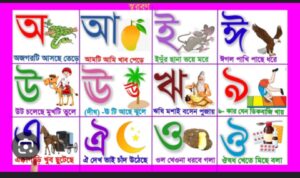Why is learning the mother tongue important?
প্রকাশিত হয়েছে : ৩:২৩:৩১,অপরাহ্ন ২২ ফেব্রুয়ারি ২০২৪ | সংবাদটি ১৩৬১ বার পঠিত
Mahika Mozumder
( Dallas, TX)

Kim Hyesoon, a contemporary South Korean poet, once said, “The rhythm of my body is the same as my mother tongue. It is in this rhythm where I find sanctity, that I can return to my mother who is everywhere in the universe.” As a first-generation American citizen, I have found great joy in preserving my mother tongue. On a daily basis, I hear English all around me which makes me no different from the people I am surrounded by. However, when I come home, speaking in my mother tongue of Bangla creates a bridge between myself and my past generations. Not only does it give me an identity besides just being American, but it also displays my Bangladeshi and Indian heritage through language. By knowing my mother tongue, I can connect to my culture while simultaneously enhancing my cognitive abilities.

All around the world, the mother tongue has served as a bridge that reconnects current generations to their roots. Oftentimes, younger generations risk losing their mother tongue because that language is not prevalent in the place they are raised in. This creates a major disconnect between the current generation and the generation of our grandparents. This is because language plays a big role in communication. To illustrate this phenomenon systemically, a famous sociolinguist named Joshua Fishman created the “three-generation model”. This model shows that the immigrant generation speaks their mother tongue, the second generation speaks and learns their mother tongue inside the home while learning English outside, and the third generation predominantly speaks English. This shift in language demonstrates the tendency for the mother tongue to fade over time. The linguistic shift across generations draws attention to the fact that mother tongue has a tendency to deplete over time, creating a gap between generations and loss of cultural heritage. Our previous generations carry a lot of our culture that makes us unique from those around us. Losing this connection to our roots leads to a loss of identity that makes us who we are.
Research has consistently shown that children who learn their mother tongue possess significantly more complex cognitive abilities than their peers. This is because mother language plays an important role in the emotional and cognitive development of children. Furthermore, the ability to effortlessly transition between languages — speaking one language outside the home and the mother tongue inside – allows children to develop multifaceted linguistic skills. This ability can aid in the betterment of their brain function overtime even into adulthood.
As Kim Hyesoon had mentioned in her quote, the sanctity found in the rhythm of one’s mother tongue creates a bridge between us and our roots and gives us a unique sense of identity. As a first-generation Bengali-American, I can proudly say that speaking my mother tongue – Bangla – has given me immense joy in that I find myself connected back to my heritage. In this melting pot of a country, I am still able to hold onto what makes me uniquely myself with the help of my mother tongue. Not only is preserving our language important for me as a Bengali, but also to the rest of the world as displayed by the three-generation model. Besides the retention of our cultural identity, maintaining our mother tongue also helps with improving our cognitive abilities from childhood to adulthood.
Mahika mozumder : Dallas, tx





